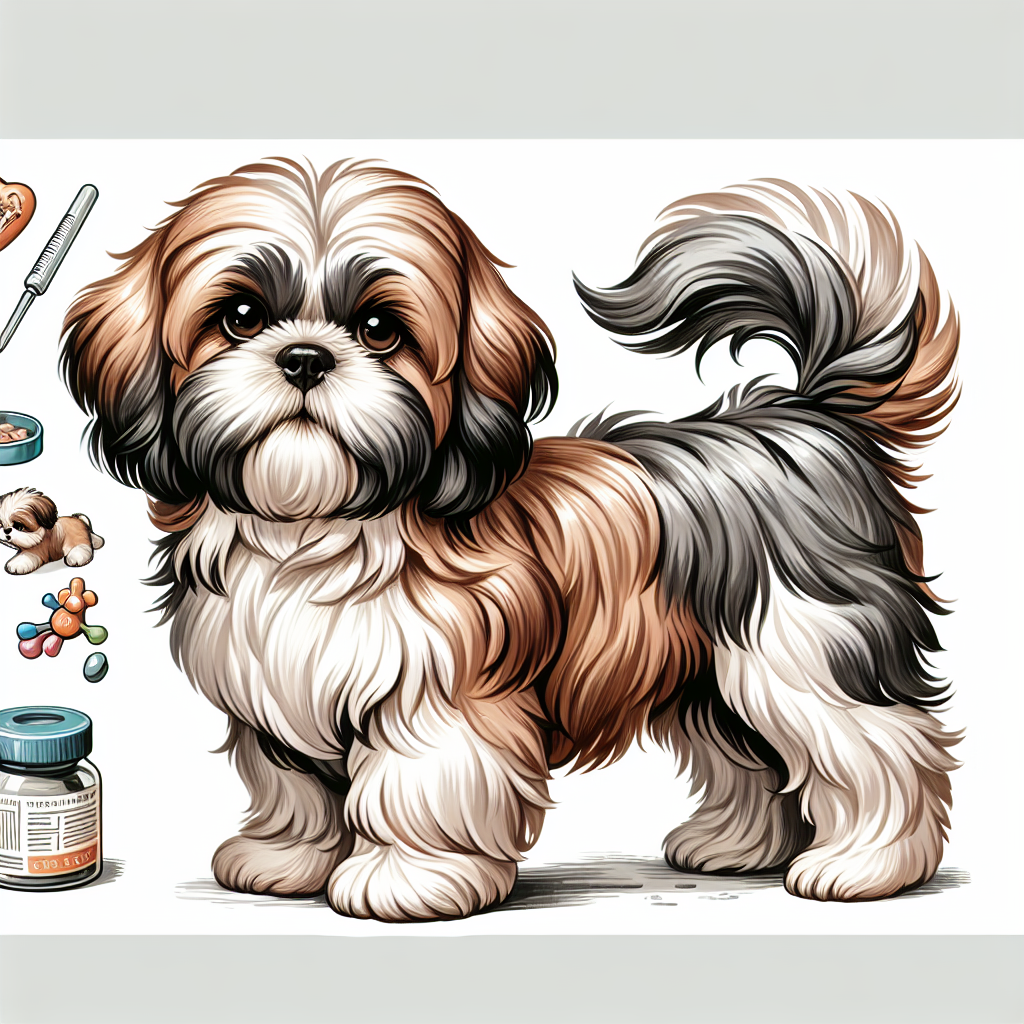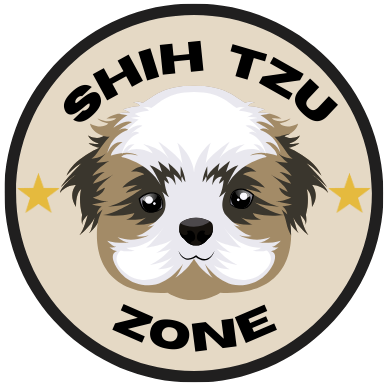Shih Tzu Health: Common Issues, Nutritional Tips, and Holistic Care

Shih Tzu Health and Wellness
Note: This post may contain affiliate links; we will earn a commission (at no additional cost to you) if you purchase via our links. See our disclosure for more info.
Introduction
The Shih Tzu, a beloved toy breed with origins tracing back to ancient China, is renowned for its endearing personality and distinctive appearance. Despite their royal lineage and small stature, these dogs require a comprehensive approach to health care and wellness to ensure they thrive throughout their lives. Prioritizing wellness not only enhances their quality of life but also helps prevent the onset of common health issues associated with the breed.
Common Health Issues in Shih Tzus
As with any purebred dog, Shih Tzus are prone to certain genetic and breed-specific health concerns. One significant issue is Brachycephalic Airway Syndrome, a condition that affects dogs with short noses and can lead to breathing difficulties. Regular monitoring and a cool environment can help mitigate its effects. Additionally, Hip Dysplasia is another concern, characterized by the malformation of the hip joint that leads to arthritis or mobility issues.
Eye problems are prevalent in Shih Tzus, with conditions such as cataracts and progressive retinal atrophy being common. These issues can result in impaired vision or blindness if left untreated. Ear infections are another frequent ailment, often caused by the breed’s floppy ears that create a moist environment ideal for bacteria. Finally, due to their small mouth structure, Shih Tzus often face dental issues which require diligent dental care to prevent infections and tooth loss.
Nutrition and Diet
A balanced diet is crucial for maintaining the health and well-being of a Shih Tzu. These dogs benefit from a diet rich in high-quality proteins, healthy fats, and essential vitamins and minerals. Omega-3 fatty acids, for example, promote skin and coat health, while glucosamine supports joint function. Attention should also be given to portion size and feeding schedules to prevent obesity, which can exacerbate existing health issues.
Some Shih Tzus may exhibit food allergies or sensitivities. Owners should be vigilant for signs such as itchy skin or gastrointestinal distress and consult with a veterinarian to tailor a diet that accommodates these needs. Grain-free or hypoallergenic diets may be recommended in such cases.
Exercise and Physical Activity
Regular exercise is vital for Shih Tzus to maintain a healthy weight and support overall physical health. Although they’re not as high-energy as some breeds, consistent activity helps to prevent obesity and stimulate their minds. Suitable exercise routines include short walks, playtime in a yard, or indoor activities like fetching toys.
While outdoor activities provide a change of scenery and enrichment, it’s important to avoid extreme weather conditions due to their brachycephalic nature. Indoor activities can be just as effective if space or weather is a concern, ensuring that your Shih Tzu remains active and healthy year-round.
Grooming and Hygiene
Shih Tzus have a luxurious coat that requires regular grooming to prevent matting and maintain its health. This grooming routine should include brushing their coat several times a week and scheduling professional grooming sessions every six to eight weeks. Their skin requires equally careful attention, with hypoallergenic shampoos helping to prevent irritation.
Proper nail care is essential to prevent overgrowth, which can lead to pain or mobility issues. Additionally, dental hygiene should not be neglected; regular brushing and the use of dental treats or toys can help maintain oral health and prevent dental disease.
Preventative Health Care
Preventative care is a cornerstone of Shih Tzu wellness. A consistent vaccination schedule is crucial for protecting against common canine diseases. Besides vaccinations, regular veterinary check-ups and screenings allow for early detection of potential health issues before they become severe.
Parasite prevention is another important aspect, as Shih Tzus are susceptible to fleas, ticks, and worms. A combination of topical treatments and oral preventatives can effectively manage these concerns and keep your dog safe.
Signs of Illness to Watch For
Being vigilant about your Shih Tzu’s health involves knowing the signs that indicate a need for immediate veterinary attention. Symptoms such as persistent coughing, difficulty breathing, or unusual discharge from the eyes should be addressed promptly. Behavioral changes, like decreased appetite or lethargy, can also signify underlying health issues.
Awareness of these signs enables pet owners to seek timely intervention, often leading to better outcomes for their beloved pets. Regular observations and prompt action can greatly improve the longevity and quality of life for a Shih Tzu.
Holistic Wellness Approaches
Holistic approaches to Shih Tzu wellness can complement traditional medical practices. Supplements such as fish oil or herbal remedies like chamomile can support their health in various ways. For instance, chamomile can soothe the digestive tract and reduce anxiety. Stress reduction techniques, such as providing a stable environment and consistent routines, are equally beneficial.
Creating a loving and secure environment contributes significantly to the overall wellness of a Shih Tzu. These dogs thrive on companionship and attention, making a peaceful home an important aspect of their holistic care.
Senior Shih Tzu Health Care
As Shih Tzus age, their health care requirements evolve, necessitating adjustments in their diet and exercise routines. Senior Shih Tzus may benefit from a diet lower in calories to prevent weight gain but rich in fiber and antioxidants to support ongoing health. Gentle exercise, like leisurely walks or indoor play, helps maintain mobility without over-exertion.
Monitoring for common age-related issues such as arthritis or heart disease becomes increasingly important. Regular veterinary visits ensure that any arising health concerns are managed promptly, enhancing their quality of life in their golden years.
Conclusion
The health and wellness of a Shih Tzu are integral to their happiness and longevity. Proactive care, encompassing nutrition, exercise, grooming, and preventative measures, forms the foundation of their well-being. Pet owners are encouraged to consult regularly with veterinarians, crafting personalized health plans tailored to their Shih Tzu’s specific needs.
Additional Resources
For further reading, consider visiting reputable websites such as the American Kennel Club and the Shih Tzu Club of America. These platforms offer a wealth of information to deepen your understanding of Shih Tzu care. Additionally, local Shih Tzu associations and clubs can provide community support and resources.
Frequently Asked Questions
What is the ideal diet for a Shih Tzu?
A balanced diet rich in high-quality proteins, healthy fats, and essential vitamins is ideal. Tailor the diet to your dog’s specific needs, considering potential allergies or sensitivities.
How often should I groom my Shih Tzu?
Regular grooming should include brushing their coat several times a week and professional grooming sessions every six to eight weeks to maintain their luxurious coat and prevent matting.
What are common signs of illness in Shih Tzus?
Watch for signs such as persistent coughing, difficulty breathing, behavioral changes, and unusual discharge from the eyes. Early intervention is key to managing health issues effectively.
By ensuring a holistic approach to their health, you can help your Shih Tzu live a vibrant and fulfilling life.
